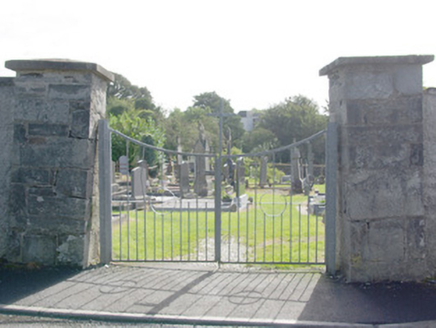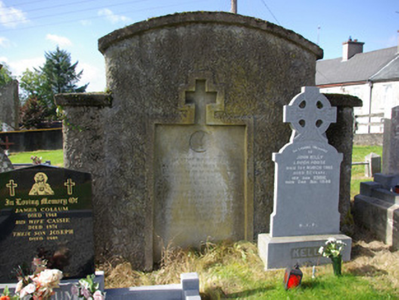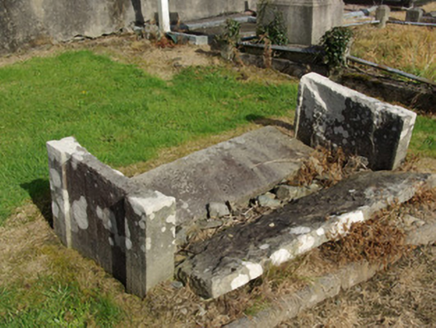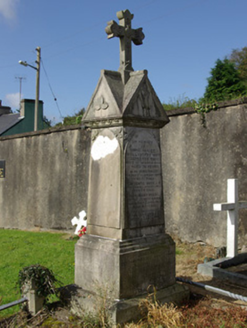Survey Data
Reg No
40838048
Rating
Regional
Categories of Special Interest
Artistic, Social
Original Use
Graveyard/cemetery
Historical Use
Church/chapel
In Use As
Graveyard/cemetery
Date
1800 - 1900
Coordinates
214837, 395404
Date Recorded
02/08/2012
Date Updated
--/--/--
Description
Graveyard (on irregular-plan), originally laid out c. 1820. Formerly also the site of Stranorlar Catholic church, built c. 1820, and demolished c. 1870 following the construction of Church of Mary Immaculate\St. Mary’s Catholic church (see 40838023) to the south-west. Collection of upstanding, recumbent and table-type gravemarkers of mainly late nineteenth and twentieth-century date, some with metal railed enclosures. Site surrounded by roughcast rendered rubble stone walls, exposed rubble stone to the southern boundary. Main gateway to the north of site comprising a pair of squared and coursed rubble stone gate piers (on square-plan) with capstones and a pair of modern metal gates. Located to the north of the centre of Stranorlar, and to north-east of Ballybofey.
Appraisal
This simple graveyard is an integral element of the social history of the Stranorlar area. It contains an interesting collection of gravemarkers of upstanding, recumbent and table types some of which are fine cut stone examples (including a number of Celtic high cross-type memorials) that are clearly the work of skilled craftsmen. A number of grave also have metal railed enclosures, which adds additional interest to this unassuming site. This graveyard is also the site of the former Catholic church in Stranorlar, which was in existence in 1824 (Pigot’s Directory), and which was demolished c. 1870 following the completion of the impressive Church of Mary Immaculate\St. Mary’s church (see 40838023) to the south-west. This church was built to a cruciform-plan (Ordnance Survey first edition six-inch map of 1837). This site is an interesting feature to the north of the centre of Stranorlar. The simple rubble stone boundary walls and the gate piers to the north, add to the setting and context.







